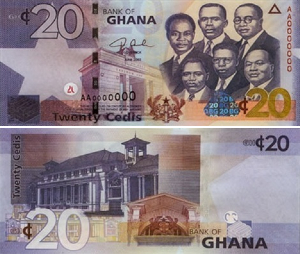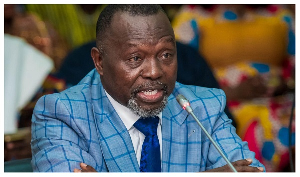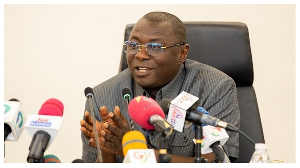The local currency of Ghana, the cedi, has been depreciating for a long time, causing significant economic hardship for Ghanaians. While the cedi primarily depreciates against the dollar, it is also affected by other major currencies. A critical question arises: what are the factors causing this instability? Ghanaians themselves may hold the answers, as their actions contribute to the depreciation.
In Ghana, goods and commodities are often priced in dollars rather than cedis. This dependency on the dollar creates an excessive demand for it, leading to an imbalance in value. The principle of scarcity states that when something is perceived to be in limited supply, its value increases significantly. The dollar's scarcity exacerbates the cedi's instability, resulting in a mismatch between supply and demand.
Scarcity forces individuals to compete for limited resources, driving up prices and leading to economic distortions, including the cedi's depreciation. Furthermore, corrupt practices, such as excessive acquisition of dollars for profit, exacerbate this issue.
The price of goods with low supply and high demand rises to meet expectations. Marketers often create artificial scarcity to generate demand, which must be addressed through effective corruption control.
In light of these challenges, Vice President Mahamudu Bawumia has pledged to back the cedi with gold, proposing a shift from reliance on the dollar to using gold as the basis for international exchange. This approach draws from historical precedents, such as the Bretton Woods system, which tied the US dollar to gold until 1971.
Gold has both positive and negative implications. On the positive side, it serves as a portfolio diversifier during economic recessions, and its historical outperformance makes it an attractive option for investment. However, the transition to a gold-backed currency requires a serious commitment to combating corruption.
The Ghanaian cedi's stability hinges on effective anti-corruption measures. A comprehensive corruption control framework, supported by political will and leadership, is essential. The current office of the special prosecutor should be abolished in favor of a more effective approach to fighting corruption.
A fixed currency system, wherein a government’s currency is tied to the value of gold, contrasts with fiat money systems and has historical precedence, as seen in Germany's adoption of the gold standard in 1871. Gold is highly liquid and can be easily converted to cash in various currencies.
Proponents argue that a gold-backed currency prevents inflation and stabilizes prices and exchange rates. However, critics contend that such a system could expose the country to volatile international gold prices. Still, Germany's unilateral adoption of the gold standard in 1871 influenced other nations to follow suit.
As the Greek philosopher Socrates asserted, democracy requires an educated public capable of discerning truth from falsehood. Informed citizens can contribute to a knowledge-based society that fosters innovation and productivity, ultimately supporting Ghana’s long-term sustainability.
Jonathan Mensah
London
United Kingdom
Opinions of Monday, 4 November 2024
Columnist: Jonathan Mensah



















